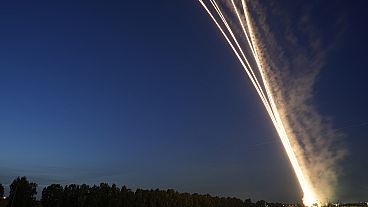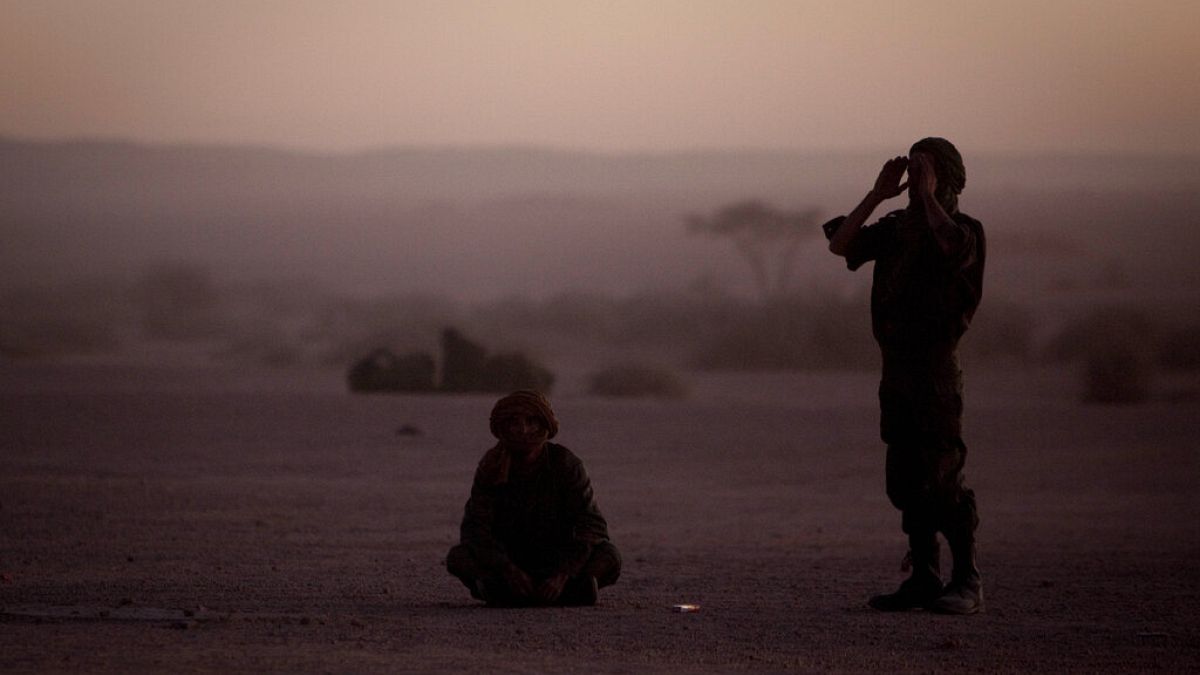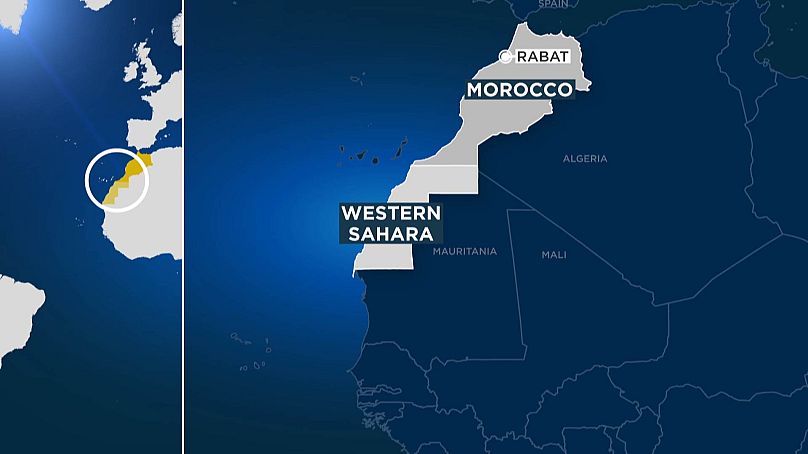Western Sahara has been occupied by Morocco since 1975 and has been described as "the last colony on earth".
Salmi Gailani was born in 1991, the year that Morocco agreed to a ceasefire with the rebels of the Polisario Front after almost two decades of warfare in Western Sahara.
Despite the peace, Gailani has grown up an exile. His childhood was spent in refugee camps in Polisario-held territory near the Algerian border and in Spain.
Now, with the rebels and the Morrocan army poised to restart the conflict, Gailani says it is time to go home - and fight.
"War means pain, death - it means many things that hurt. But we believe that 30 years is more than enough. We have exhausted peaceful means,” he told Euronews.
On November 13, Morrocan soldiers entered the United Nations buffer zone near Guerguerat that separates Western Saharan territory controlled by Rabat from the “liberated zone” controlled by the Polisario Front, in contravention of the 1991 ceasefire.
In response, the Polisario Front declared a “state of war” and warned that thousands of volunteers in the Sahrawi Arab Democratic Republic (SADR) were willing to fight. In the days since, the UN - which has urged both Rabat and the PF to respect the ceasefire - has received reports of several “shooting incidents” made by either side, a spokesperson told Euronews.
Western Sahara has been described as Africa’s last colony, with two-thirds of its territory occupied by Morocco since 1975. Morocco considers swathes of the former Spanish colony to be its sovereign territory, including its phosphate-rich northwest. As part of the 1991 peace deal, Morocco agreed to hold an independence referendum, which it has so far failed to do.
Phosphate reserves
It is a vote that, despite the emigration of tens of thousands of Moroccans since the 1970s, Rabat would almost certainly lose. Its occupation is backed by a number of its prominent Arab allies, including Saudi Arabia and Jordan. It also isn’t all about valuable phosphate reserves, said Jacob Mundy, Associate Professor of Peace and Conflict Studies, at Colgate University.
Ever since Morocco gained independence in 1956, there has been a narrative that the country was robbed by France and Spain of territory that would have made up a Greater Morocco, including Western Sahara and parts of both Mauritania, Mali, and Algeria, also French colonies. In 1963, Morocco invaded Algeria over a border issue and suffered a humiliating defeat
When it invaded Western Sahara in 1975, Morocco’s government faced a serious challenge from a political left buoyed by the successes of Houari Boumediene in Algeria, Muammar Gaddafi in Libya, and Egypt’s Gamal Abdel Nasser. Nasser had died in 1970 but his pan-African socialism continued to inspire anti-monarchist movements throughout Africa and the wider world.
So when Spain announced that it would hold a referendum on independence for Western Sahara - then called Spanish Sahara - in 1975, Morocco’s King Hassan II acted. By "reclaiming" Western Sahara, the king was able to gain momentum and stave off opposition from within. To this day, said Mundy, the recovery of Western Sahara is the cornerstone of Rabat’s legitimacy.
“It's an article of national faith and Moroccan children are taught it from day one. [...]. I personally suspect that many Moroccans would see the monarchy end before they ever gave up Western Sahara,” he said.
The war against Polisario, however, has been a costly one, not least due to the militarisation of the 2,700km "berm" - or fortified wall - that Morocco has erected on its side of the UN-controlled buffer zone. Even since 1991, the conflict with Polisario has seriously disrupted trade, with protesters in the liberated zone-blocking roads that connect Morocco to Mauritania.
Guerguerat
It was one such protest that caused the recent incident near Guerguerat, where on October 20 Sahrawi demonstrators prevented trucks from driving from Morocco to Western Sahara and onwards to Mauritania. In response, Morocco threatened to remove the protesters by force, which is exactly what it appears to have done on November 13.
But for the Polisario Front, the spat is no longer about protests, it is about a total Morrocan withdrawal from Western Sahara. "The end of the war is now linked to the end of the illegal occupation" Mohamed Salem Ould Salek, a Polisario representative, told AFP on Monday.
Gailani, the exile, said there is no way back now but for all-out conflict: “We have been prepared for this for more than 30 years [...]. We have never lowered our guard,” he said.
He said the international community needed to be aware that the Polisario Front was more than willing to return to armed struggle, and that the recent incident in Guerguerat was “the straw that broke the camel’s back.”
Gailani blames the U.N. for the fact that for 30 years Western Sahara has been a frozen conflict, with the Sahrawi people promised a referendum by Morocco that never came. "30 years is long enough to place ballot boxes,” he said.



